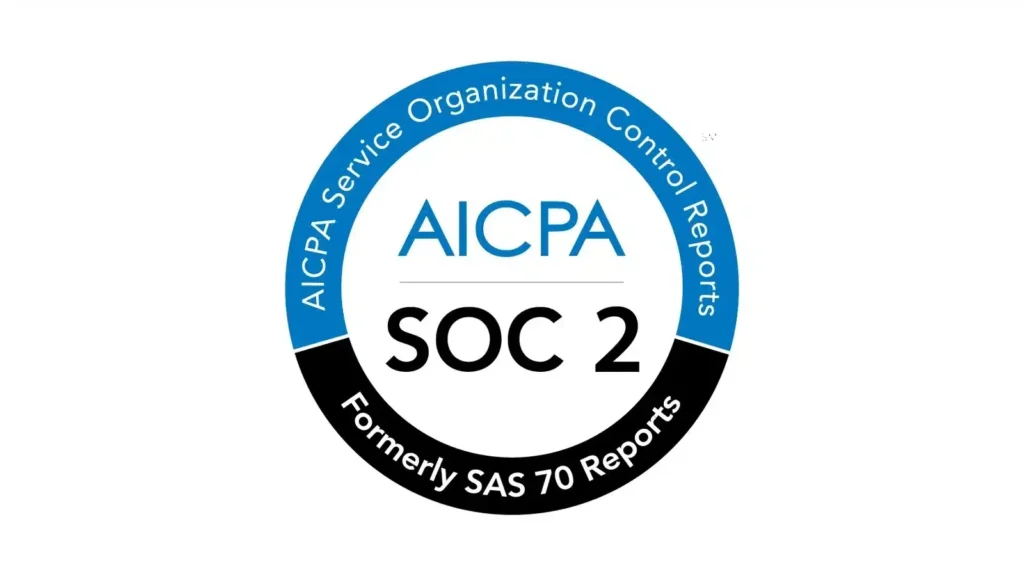If you’re considering Portugal as the next frontier for your business, you’re in good company. This Southern European nation is increasingly becoming a magnet for entrepreneurs, thanks to its stable economy, favourable business environment, and attractive quality of life.
This comprehensive guide will examine the legal procedures for setting up a business in Portugal, explore the types of companies you can establish, and discuss potential challenges you may face. Let’s get started.
The Legal Process of Registering a Business in Portugal
Although starting a business in Portugal is exciting, it’s not something you can do on a whim. There are legal steps to ensure your business complies with Portuguese law. Let’s break them down in detail so you can confidently navigate this process.
1. Preliminary Requirements
Before thinking about profit margins or marketing strategies, you must lay the legal groundwork for your business. Here’s a step-by-step guide to help you through the preliminary requirements:
- Obtain a Portuguese tax identification number (NIF): This is the first thing you’ll need. You can get a NIF from the local tax office (Finanças) or through a Portuguese consulate if you’re abroad. You’ll need to present identification, usually a passport, and proof of address.
- Secure a residency card: If you’re an EU citizen, you can apply for a Registration Certificate from your nearest city hall (Câmara Municipal) within 30 days after your first three months in Portugal. A residency permit is required for non-EU citizens, which brings us to the next point.
- Social security number: This is essential for tax reporting and employee matters. You can apply for a Social Security number at the same time as your NIF or later at a Social Security office.
- For non-EU/EFTA citizens: If you’re not from an EU/EFTA country, you must apply for a Portuguese business visa and a residency permit. The most common option for entrepreneurs is the D2 visa. You’ll need to show a solid business plan, proof that your idea is economically viable, and evidence of experience in the area.
2. Company Name Registration: A Step-By-Step Guide
Choosing the right name for your business is more than just a creative exercise; it’s a crucial part of your brand identity. Here’s how to go about it:
-
Step 1: Check name availability
- Before you get too attached to a business name, you’ll need to check if it’s available. This can be done online through the Portuguese Registry of Business Names (Instituto Nacional da Propriedade Industrial or INPI).
-
Step 2: Submit a name approval request
- The next step is to submit a name approval request if the name is available. This usually involves filling out a form and paying a fee. The cost can vary, but it’s typically around €75.
-
Step 3: Wait for approval
- Once submitted, it usually takes about a week to get approval. If the name is rejected for any reason, you’ll have to start the process over again with a new name.
-
Step 4: Register the name
- After receiving approval, you’ll need to register the name officially. This involves more paperwork and another fee, but once it’s done, the name is yours, and you can proceed with the rest of your business setup.
Types of Companies You Can Establish
Portugal’s business environment is as diverse as it is welcoming, offering a variety of legal structures to suit different entrepreneurial visions. Here’s a deeper dive into the types of companies you can establish, along with their unique benefits and characteristics:
1. Single-Member Liability Companies
This is your go-to option if you’re an individual entrepreneur who prefers to operate independently. It allows you to have full control over your business decisions while limiting your liability to the extent of the company’s assets. This structure is particularly beneficial for solo ventures where you don’t want to share ownership or decision-making power.
2. Sole Traders
This structure perfectly fits freelancers, individual consultants, or professionals offering specialised services. The most significant advantage is that there’s no minimum capital requirement to start your business. However, it’s essential to note that your personal assets could be at risk since the liability is unlimited. This means if the business incurs debts, you’re personally responsible for them.
3. Individual Limited Liability Establishments
Consider this option if you’re looking for a middle ground between sole trading and a more formal corporate structure. It requires a minimum capital of €5,000 but offers the benefit of separating your personal and business assets. This is particularly useful for those who want to protect personal assets like a home or savings from any business-related financial risks.
4. Private Limited Companies
Designed for businesses that plan to operate with multiple partners, this structure requires a minimum investment of €5,000. One of its key benefits is that it allows for shared ownership and responsibilities, making it easier to raise capital and distribute risk. Each partner’s liability is limited to their share of the capital, providing an added layer of financial protection.
5. Public Limited Companies
If you’re eyeing a larger enterprise or even considering going public in the future, this is the structure for you. It requires at least five shareholders and a minimum capital of €50,000. This structure is often chosen by businesses that need significant capital investment and plan to issue shares publicly. It’s more complex regarding regulatory requirements but offers the advantage of attracting investment more easily.
6. Cooperatives
For those interested in community-oriented projects or social enterprises, cooperatives are an excellent choice. These are member-owned and member-operated businesses that aim to fulfil a shared social or economic need. They are democratic entities where each member gets a vote, making it a suitable structure for ventures that prioritise community impact over profits.
7. Partnerships
This is a flexible option for those who want to go into business with someone else but don’t want to deal with the formalities of a limited company. There’s no minimum capital requirement, making it easy to start. However, it’s crucial to be aware that all partners have unlimited liability. This means that each partner is personally responsible for the business’s debts, so choose your partners wisely.
Challenges and Potential Obstacles Entrepreneurs Might Face
While Portugal is undoubtedly a favourable environment for businesses, there are challenges to be aware of. Studying these potential obstacles can help you prepare adequately and make your entrepreneurial journey smoother.
Language Barrier
If you’re not proficient in Portuguese, you may be at a disadvantage, especially when dealing with legal and accounting matters. Official documents, contracts, and even some business meetings may be conducted in Portuguese.
Imagine being presented with a complex tax document that’s entirely in Portuguese. Misinterpreting even a single clause could lead to compliance issues or financial penalties. In such cases, consulting with professionals who are fluent in Portuguese can be invaluable.
Whether it’s a legal advisor for contract negotiations or an accountant for tax filings, their expertise can save you time and potential headaches.
Administrative Complexity
The bureaucratic process in Portugal can be intricate and time-consuming. From registering your business to obtaining the necessary permits and licenses, each step has its own set of rules and requirements.
For instance, if you’re opening a restaurant, you’ll need more than just standard business registration. Health and safety permits, food handling certifications, and possibly liquor licenses will be required.
Familiarising yourself with local legal requirements or hiring a consultant specialising in Portuguese business law can help you navigate this administrative maze more efficiently.
Tax Regulations
While Portugal’s tax system is designed to be business-friendly, it can be complex. Understanding corporate tax structures, VAT, and other levies is crucial for compliance and financial planning.
For example, the VAT rates could differ based on the product type and destination if you’re running an e-commerce business that sells domestically and internationally. This requires meticulous record-keeping and reporting.
Consulting a tax advisor familiar with Portuguese tax law can help you understand your tax obligations and optimise your financial planning.
Cultural Differences
Portuguese business culture places a high value on relationship-building. While this fosters a collaborative and trustworthy business environment, it can sometimes extend decision-making timelines.
For example, you might be in talks with a local supplier and have had several productive meetings. However, they may take their time in making the final decision, opting for more discussions and negotiations. In these situations, patience and understanding are key.
Building genuine relationships will show that you’re interested in a long-term partnership, which is often highly valued in Portugal.
Start a Business or a New Entity in Portugal with Emerald
When it comes to setting up a business in Portugal, the road can be filled with legal intricacies and administrative hurdles. That’s where Emerald steps into the picture, offering a streamlined approach to all the complexities you might face. Imagine having a partner who understands the global landscape and offers tailored solutions to your needs. That’s precisely what Emerald brings to the table.
We specialise in onboarding remote employees to comply with global regulations, create locally compliant contracts, and ensure timely payments in the correct currency. But our services go beyond just the basics. We offer expertise in international visa processes, helping you and your team navigate the often confusing world of work permits and residency requirements. And when it comes to sourcing talent for your expanding operations, Emerald has you covered with their global talent acquisition capabilities.
One of the standout features is our 24/7 support, offering dedicated experts who can always assist you. This is complemented by our knowledge of employee benefits, from health insurance and retirement plans to specialised knowledge of local maternity and paternity leave benefits. We even handle the nitty-gritty details like issuing compliant payslip documentation and advising on local trial period regulations.
Emerald is a one-stop solution for your business needs, allowing you to focus on what you do best — running your business. We are a cost-effective, simplified, and professional alternative to navigating the Portuguese business landscape on your own.
So, as you embark on your entrepreneurial journey in Portugal, consider making it a smoother ride with Emerald. Your future self will undoubtedly appreciate the ease and expertise that come with choosing such a reliable partner. Get in touch with our expert team to learn more.
Read also: How to Hire Employees in Portugal




